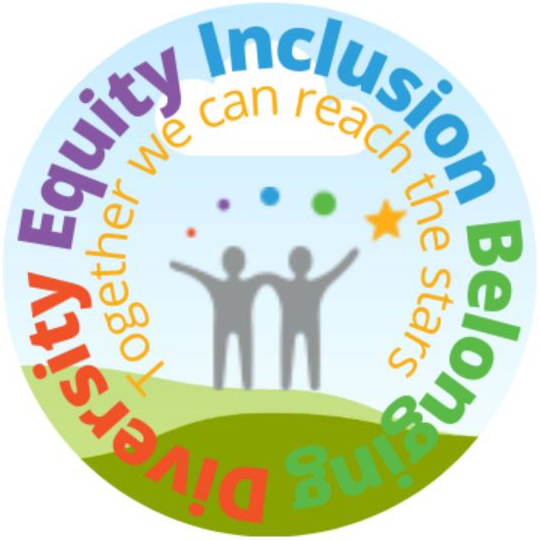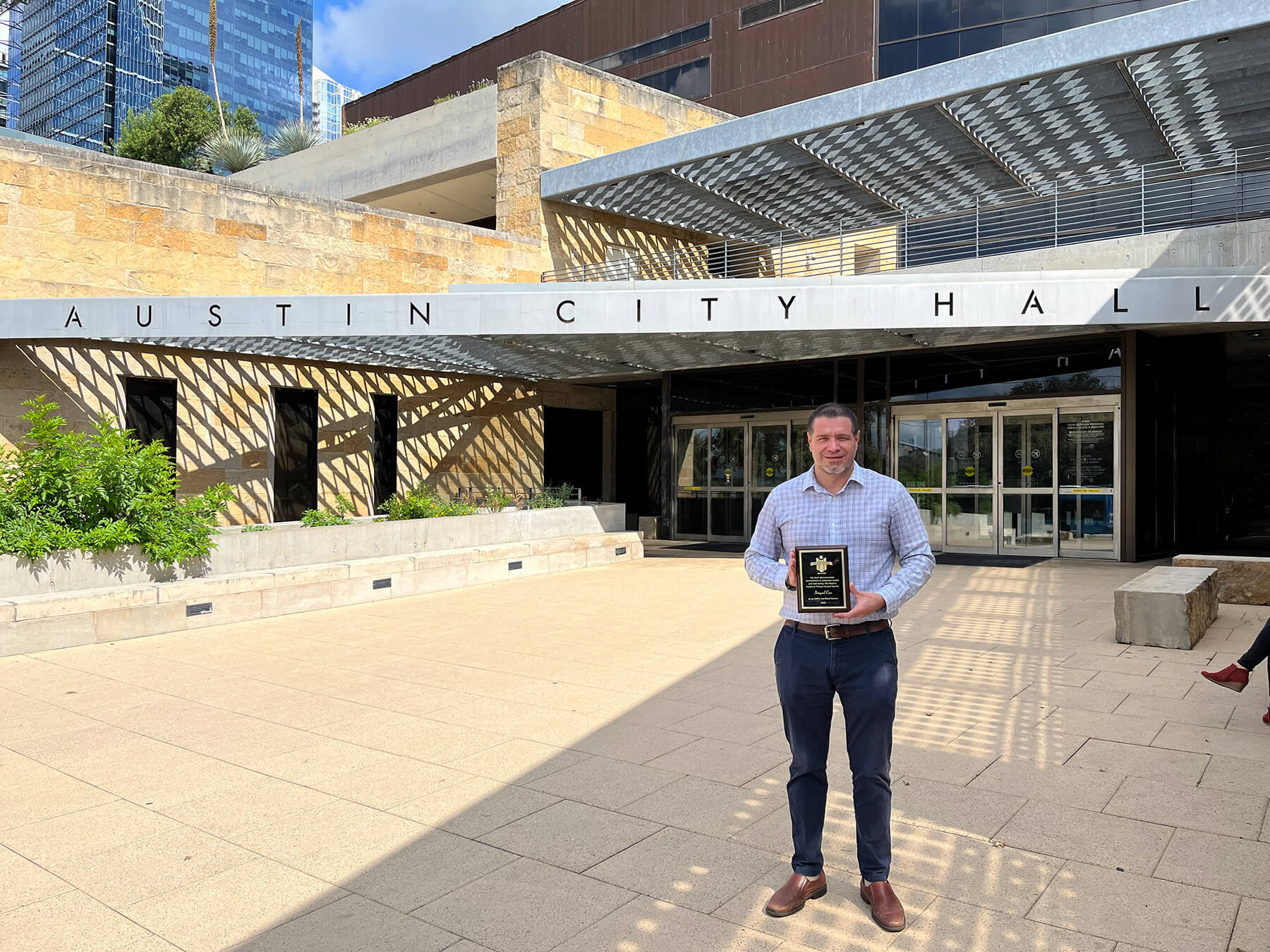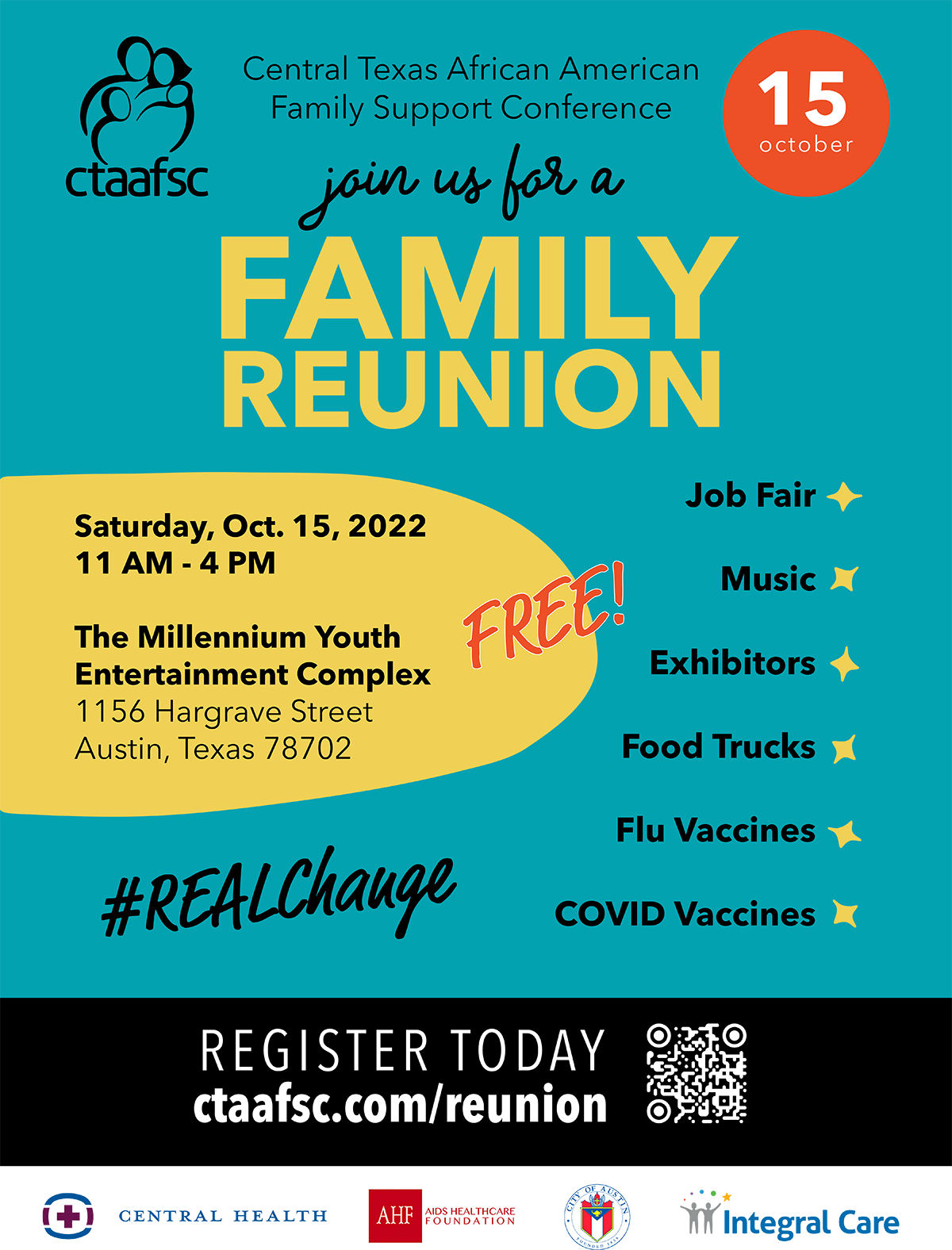Integral Care remains committed to eradicating institutional racism and structural inequities within our organization. At the recommendation of our Board/Staff Ad Hoc Committee on Racial Equity, Integral Care launched our interim Racial Equity Plan in May 2021. The interim plan was built from crucial conversations with our staff and collaboration with a national expert in the field of racial equity and cultural competency. It was also developed with the intent that racial equity would be incorporated into our strategic planning going forward. We updated our last Strategic Plan to include racial equity efforts and fully integrated it into the process of creating our new FY23-25 Strategic Plan.
TRANSPARENCIES
A monthly newsletter from Integral Care
Working Toward Racial Equity

A Message From Our CEO
We worked with consultants through all of our efforts and sought input from our clients, our staff, family members, peer support specialists, community collaborators and advisors, local healthcare providers and the Central Texas African American Family Support Conference Planning Committee. We used tools from the Government Alliance on Racial Equity (GARE) to build racial equity and develop anti-racist practices. Through this process, we identified strategies and steps we must incorporate into all efforts for Integral Care to be successful in advancing racial equity. Over the last two and a half years, we have met many of the goals outlined in the 2021 Racial Equity Plan across client care and service provision, but there is still work to do. Real change takes time, commitment, and consistency.
In June 2022, Smith Research & Consulting LLC completed a Racial Equity Assessment of Integral Care. The consultants examined racial equity across Integral Care’s services, policies and procedures, environment, workforce, and communications. Client access to services, including preferred language, and overall public perception of the agency were also examined.
The Racial Equity Assessment identified opportunities for growth and improvement throughout the agency and the need for more equitable service provision for clients of color. In the spirit of transparency, here are its key recommendations as well as some of our current efforts in these areas.
Key Recommendations
1. Conduct an in-depth study of racial inequities across racial groups in intake, diagnosis, Level of Care classification, and engagement in services and programs to understand barriers and develop strategies for remediation.
Integral Care uses data to identify, monitor and respond to racial disparities in the care we provide.
- We partnered with Dell Medical School to address the overdiagnosis of schizophrenia in in Black/African American males. By adding differential diagnosis questions to our EHR, clinicians are prompted to consider other diagnoses before making a schizophrenia diagnosis. Disparate diagnoses trend downward.
- Throughout FY21, we launched initiatives to reduce the overdiagnosis of oppositional defiant disorder (ODD) and conduct disorder (CD) among BIPOC children and youth, including increased cultural competency focused trainings, education and advocacy, and a differential diagnosis process specifically for these diagnoses. We noticed a sizeable decrease in the disparity gap and in the number of ODD and CD diagnoses assigned to BIPOC youth.
- Our Language Access reporting tracks the percentage of clients who received services in their indicated preferred language.
- We continue to meet national standards for Culturally and Linguistically Appropriate Services (CLAS).
2. Develop and adopt a model of authentic community engagement with Integral Care clients, community partners, and the Austin-Travis County mental health ecosystem stakeholders.
- In collaboration with a dedicated planning committee, we have hosted the Central Texas African American Family Support Conference (CTAAFSC) for over 20 years. This conference brings together professionals, people with lived experience, family members and community members to have honest and frank conversations about the impact of mental illness, intellectual and developmental disabilities, and substance use disorder on the Black/African American community and provides resources and offers support to attendees. This work continues year-round by sharing resources and connections through various conference committees, monthly forums focused on Black mental health, and the CTAAFSC Facebook group.
- We are strengthening our relationships with organizations that support underserved communities – having a dialogue on how to best serve the mental health needs. We’re currently working with Asian American Pacific Islander and Muslim organizations to develop mental health presentations with a cultural lens that help ensure underserved communities have access to mental health tools. We will expand this work across the community and bring back important information to staff that could impact client care.
3. Develop long-term strategies for recruiting a more diverse workforce.
One goal of our new FY23-25 Strategic Plan is “Cultivate Workforce.” To us, this means supporting team members’ well-being, providing opportunities for growth and recruiting a team that reflects the people we support. Strategies to achieve this goal include:
- Innovative approaches to recruit and retain new team members and providers that reflect the people we support
- Opportunities for growth, advancement, well-being, and development
- A culture based on our values
- Sustainable funding sources to support our workforce
4. Consider reporting client outcomes disaggregated by race and ethnicity to the community.
- We are in the process of disaggregating client outcomes by race categories and ethnic origin based on the federal definition of Ethnicity and Race and plan to share the results with the community. This will help identify impact on service provision from diagnostic overshadowing to how long clients wait for care.
- In FY20, we created a Health Disparities Report Card that provides leadership an at-a-glance look at potential inequities and gaps in care across our services. It is designed to show us where the biggest disparity gaps are, inform where we allocate resources and track our progress.
5. Review client intake and information gathering processes to reduce time spent repeating past traumas.
- To create a more trauma-sensitive experience for our clients, Intake Optimization has been a focus of our System of Care over the last year. In the past, clients have had to retell their story to multiple providers. Our intake assessments have been streamlined so that clients only share their story once, creating a better client experience and enhancing continuity of care across our programs. Since implementation, client feedback has been overwhelmingly positive.
6. Build cultural competence goals and design regular strategies to achieve those goals.
- All staff are trained on the impact of institutional racism and on how to recognize their own unintended biases. Education is key to identifying our biases, staying informed about culturally relevant care, and ultimately providing welcoming services for those we serve.
- We are improving our trainings to provide more opportunity for staff to interact with people who come from a different background and plan to launch an updated Care for Culture training, which increases awareness of each person’s cultural identity and its impact on communication, health beliefs and practices, and service delivery, in Spring 2023. We are also creating a training for unbiased interviewing.
I am proud of the steps Integral Care has taken toward building racial equity agency-wide. It is critical that we deliver equitable, person-centered, culturally competent care to ensure that BIPOC communities have access to mental health services responsive to their needs. The creation of our interim Racial Equity Plan, results from our Racial Equity Assessment and development of our new FY23-25 Strategic Plan all lead us toward meeting our vision of Healthy Living for Everyone.

David Evans
Chief Executive Officer
Transparencies Archive
Past Transparencies sorted by year
2022
September 2022: Coming Together on the Road to Recovery & Suicide Prevention
August 2022: Expanding Access to Critical Mental Health Support
July 2022: Supporting BIPOC Mental Health through Data
June 2022: Celebrating Pride Month
April-May 2022: Looking Ahead to Mental Health Month
March 2022: Honoring Developmental Disabilities Awareness Month
February 2022: Strengthening Our Network of Mental Health Support
January 2022: Looking Ahead in 2022
2021
December 2021: Celebrating Progress & Innovation in 2021
November 2021: Action Steps Toward Preventing and Ending Homelessness
October 2021: Language Access & Racial Equity
September 2021: Treatment & Addiction Psychiatry at Integral Care
August 2021: Returning to School plus the Legislative Wrap-up
July 2021: Creating Lasting Change for BIPOC Mental Health
June 2021: Facts & Resources This Pride Month
May 2021: Mental Health Month
April 2021: How do we help Austinites experiencing homelessness?
March 2021: Growth and Positive Change
February 2021: How Do We Create a Better Future?
January 2021: Looking Ahead to the Legislative Session
2020
December 2020: Supporting Your Mental Health This Winter
November 2020: How do we rebuild health and well-being during a pandemic?
October 2020: With Collaboration Comes Innovation
September 2020: Success Stories of Recovery and Suicide Prevention
August 2020: A Back to School Season Like Never Before
July 2020: Minority Health Disparities & COVID-19
June 2020: Stronger Together
May 2020: Surviving and Thriving During Uncertain Times
April 2020: Persevering During COVID-19
March 2020: Collaborations and Initiatives to Improve Health for the IDD Population
February 2020:Solutions to Health and Health Care Disparities
January 2020: Sucicide Prevention a Local Effort
2019
December 2019: A Year of Thriving Care & Collaboration
November 2019: Teamwork and Collaboration Impact Homelessness in Travis County
October 2019:Making Strides for World Mental Health
September 2019: Taking Steps to Recovery Support
August 2019: Working Together for Child & Youth Mental Health
July 2019: Legislative Wrap-Up – Some Bipartisan Wins for Healthcare
June 2019: Strengthening Access for Veterans and the Entire Military Family
May 2019: Women and Mental Health
April 2019: Legislative Session Status Report
March 2019: Making Opportunities for Recovery More Accessible
February 2019: Recovery is Possible
January 2019: Stronger Outcomes Through Collaboration
December 2018: Looking ahead to the 86th Texas Legislature
November 2018: How Tech is Changing the Face of Mental Health
October 2018: A Few Questions Could Help Save a Life
September 2018: Anyone Can Save a Life
August 2018: A Milestone Moment
July 2018: Equity in Mental Health Care for All
June 2018: Expanding Services for Veterans
2018
May 2018: Your Mental Health Toolkit
April 2018: Time of Terror Calls for Increased Emotional Support
March 2018: Stopping the cycle of incarceration for individuals with mental illness
February 2018: Equity in mental healthcare for everyone
January 2018 : Improving Mental Health Through Partnership & Collaboration
2017
December 2017: Strength Through Community
November 2017 : Healthy Lifestyles Improve Well-Being
October 2017 : National Child Health Day
September 2017 : Strengthening Families and Communities
Highlight: Diversity, Equity, Inclusion & Belonging Council

Integral Care’s staff-led Diversity, Equity, Inclusion & Belonging (DEIB) Council serves as an advisory group and catalyst to develop and implement DEIB goals related to service delivery, employment, communications and quality improvement. One of their initiatives is hosting Diversity Lunch N’ Learns, which offer staff a chance to learn from their peers about their culture and identify. Topics have included The Muslim Experience, Coming Out, Being an Autistic Mental Health Professional, Africa in the World and more.
Highlight: Local Plan Drafts Feedback Opportunity
(Through Sunday, 10/16)

Integral Care is seeking public comment on two draft plans, the draft Consolidated Local Service Plan (CLSP), and the draft Local Provider Network Development Plan (LPND). Integral Care invites the Travis County community to review these draft plans and provide feedback. These formal documents address service priorities and plans developed through input from various planning groups throughout the Travis County community. They describe the array of local services provided by Integral Care and opportunities for expansion of provider services.
Please send comments to Louise F. Lynch, Provider Network and Authority Officer, via our contact form or directly at louise.lynch@integralcare.org by October 16th, 2022.
Highlight: Welcome New Chief Medical Officer, Dr. Ziyad Nuwayhid & Deputy Chief Financial Officer, Anna Arage
Highlight: Mayor’s Health & Fitness Council Partner Recertification
We are proud to announce that Integral Care has been recertified as a 2022 Mayor’s Health & Fitness Council Gold Level Partner, the highest level of certification. To achieve this certification, organizations must have health initiatives that comprehensively address tobacco-free living, physical activity, nutrition and health education and preventive services.

What's New
KUT Features Spanish Youth Suicide Prevention Forum
Late last month, Integral Care partnered with NAMI Central Texas to present a Spanish community forum on youth suicide prevention. It addressed common stigmas around mental health in the Hispanic and Latinx communities, tips for having tough conversations around mental health and more. Check out the full write up here. Watch forum here.
Teresa Williams & David West Appear on the Employee Safety Podcast
Teresa Williams, Director of Clinical Services, and David West, Associate Director of Integrated Systems of Care, recently had the opportunity to join The Employee Safety Podcast at AlertMedia to discuss how communication is the key to protecting our clients and employees and keeping vital programs up and running. You can listen to the episode here.
CTAAFSC Family Reunion
The Central Texas African American Family Support Conference Family Reunion event is this weekend! Join us on Saturday, October 15th from 11 am to 4 pm at the Millennium Center. This free event will include a job fair, music, exhibitors, food trucks and flu and COVID vaccinations. Register today!
Take Advantage of Discounted Mental Health First Aid Trainings!

Take a class. Save a life. Mental Health First Aid (MHFA) is a class that gives people the tools they need to help someone who might be developing a mental health problem or experiencing a mental health crisis. MHFA can save a life, just like CPR can help save someone who is having a heart attack. We are offering discounted MHFA classes through the end of 2022. If you have questions, please email the MHFA Team at mhfa@integralcare.org or call us at (737) 263-3352. Learn more here.
 Please welcome Dr. Nuwayhid into his new role as our Chief Medical Officer. Previously at Integral Care, he was the Associate Medical Director over Child and Family Services and Crisis, Residential, Substance Use and Justice Programs Division. Hailing from Los Angeles, Dr. Nuwayhid attended the University of Chicago as an undergraduate and graduated from the University of Texas Health Science Center at San Antonio Medical School in 2012. He completed a residency in General Psychiatry UTHSCSA in 2016 and a Forensic Psychiatry Fellowship at the University of California at Irvine in 2017. Dr. Nuwayhid brings a wealth of knowledge and skill to the position in working with individuals with complex needs. We are excited about the work ahead under his medical leadership.
Please welcome Dr. Nuwayhid into his new role as our Chief Medical Officer. Previously at Integral Care, he was the Associate Medical Director over Child and Family Services and Crisis, Residential, Substance Use and Justice Programs Division. Hailing from Los Angeles, Dr. Nuwayhid attended the University of Chicago as an undergraduate and graduated from the University of Texas Health Science Center at San Antonio Medical School in 2012. He completed a residency in General Psychiatry UTHSCSA in 2016 and a Forensic Psychiatry Fellowship at the University of California at Irvine in 2017. Dr. Nuwayhid brings a wealth of knowledge and skill to the position in working with individuals with complex needs. We are excited about the work ahead under his medical leadership. Integral Care is excited to welcome Anna Arage, Deputy Chief Financial Officer, to the team. She comes with a wide array of experience, most recently serving as Chief Financial Officer at Gulf Bend Center, a community center in Victoria, Texas, for the last 10 years. She is a mother and grandmother and enjoys spending time walking and/or exercising. Anna recently moved to Austin and has been involved in community and women’s ministry for many years.
Integral Care is excited to welcome Anna Arage, Deputy Chief Financial Officer, to the team. She comes with a wide array of experience, most recently serving as Chief Financial Officer at Gulf Bend Center, a community center in Victoria, Texas, for the last 10 years. She is a mother and grandmother and enjoys spending time walking and/or exercising. Anna recently moved to Austin and has been involved in community and women’s ministry for many years. 


